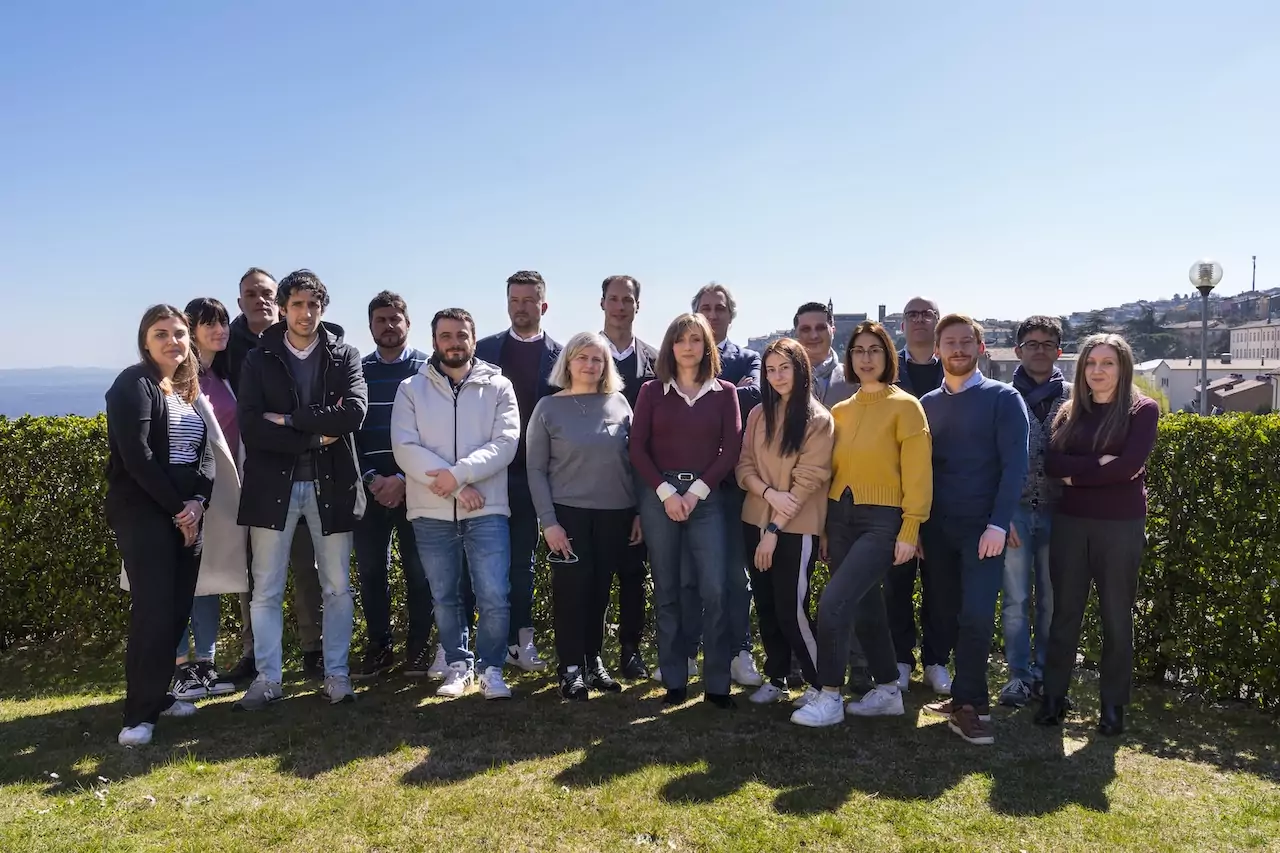Distributed companies, frequently changing regulations, many players to coordinate: food safety is an operational profession, even before it is a digital one. Biorsaf was born right there, ‘in the middle’ of the processes. “It is an operational tool created by safety professionals, not by a generic software house,” Marco Papalini, CEO and co-founder (pictured with the team), tells Startupbusiness. “Our platform adapts to the company and the consultant, not the other way around: it integrates people, machines and processes and, while managing activities, collects data for analysis and decision-making.”
The company has closed a €1.4 million funding round: partners include Farming Future, CDP Venture Capital’s technology transfer hub, Maia Ventures and ToSeed & Partners. “We have invested in becoming an e-company: we integrate artificial intelligence and connections with IoT and existing platforms,” explains Papalini. “In 2025–2026, we want to consolidate the market and start internationalisation between the end of 2026 and 2027; during that window, we will also evaluate a new round.”
The context helps. “Demand is strong: we are sought after by large-scale retailers, restaurants and even SMEs. The useful leap forward today is to move from paper to digital: centralising sites and procedures, reducing errors and time, measuring improvements. We see it every day.”
The promise lies in simplicity. “It was complex to make it simple: we use the language of safety, the language of those who actually do this work. And we have made Biorsaf versatile and integrable with existing tools, so that processes are not repeated twice.” The other lever is regulatory updates: “The platform automatically updates to new standards and procedures. With AI, it will be even faster and more reliable.”
For Papalini, safety is not a separate silo. “Safety processes cannot be separated from production processes: they are an integral part of them, synonymous with quality. Integration with machines and sensors allows for automatic recording, less friction and greater reliability: benefits that are also reflected in sustainability reports and in reduced risk for managers.”
As to why now, the CEO broadens his perspective: “Good technology serves to improve quality of life. In just a few decades, we have gone from dying of hunger to dying from what we eat: nutrition and safety must be fundamental. Innovation cycles have shortened: the scientific community is ready, and so are businesses.”
The territory matters. “In Grosseto and Amiata, we found an ecosystem eager to innovate. The support of partners such as ToSeed & Partners accelerated a process born out of a concrete need: in 2019, we were looking for a solution for our customers, and it didn’t exist. We built it, and from there, word of mouth did the rest.”
The golden rule remains pragmatic. “We always say: if it’s not useful, don’t take it. That’s why we offer a trial: when companies try the platform and see that it works, they don’t go back.” And what about founders who want to build a SaaS in this area? “I don’t give advice, I share a method: work, dedication, persistence. Start with the skills you have and improve them. One step at a time, every day. That’s how you build something that lasts.”
Note to reader: the author is CEO of Beeco and works with investment funds active in agritech, which may have supported or will support some of the startups mentioned in the future.
ALL RIGHTS RESERVED ©
